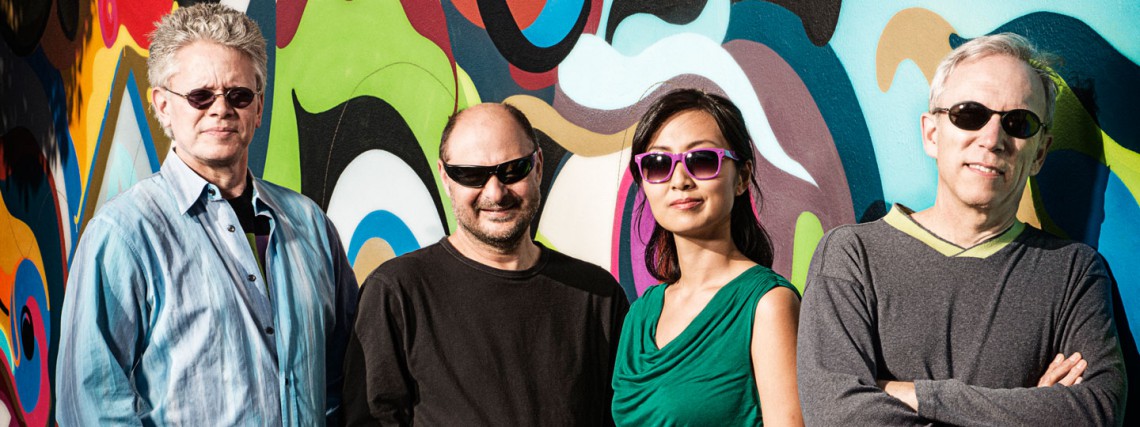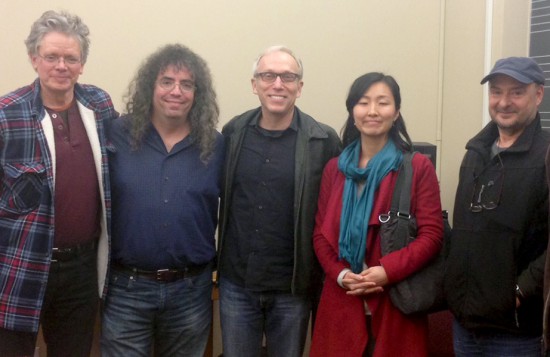 Kronos Quartet, photo by Jay Blakesberg
Kronos Quartet, photo by Jay Blakesberg
Kronos Quartet visits the Graduate Composers Forum
Musicians share their history, travel woes and stress the importance of logically placed page turns.
On Jan. 20, the Graduate Composition Forum at the Department of Music welcomed the Kronos Quartet – David Harrington and John Sherba, violins; Hank Dutt, viola; and Sunny Yang, cello – for an in-depth question and answer session.
Kronos is a leading proponent of new music for string quartet, nurturing long-standing relationships with composers throughout the world. And by establishing the non-profit Kronos Performing Arts Association, they have expanded the idea of what an ensemble can do through community projects such as coaching elementary through college level musicians and soliciting new work from young composers.
Their concerts, recordings, film score work and multi-media projects have given them exposure far beyond that of many other string quartets, yet their repertoire remains challenging and innovative, not watered-down for any concerns of commerciality
Associate Professor of Composition Mark Applebaum moderated the wide-ranging discussion that not only took a look at the Kronos’ 40 years-plus career, but also revealed some of the earlier activities of each member: their first awareness of music as youngsters, and various memberships in school and/or amateur orchestras. Harrington recounted in some detail the debut performance of Kronos in November 1973, in front of an audience largely composed of his relatives.
Many comments from the ensemble revealed the trials of working musicians: awkward travel arrangements, uncomfortable chairs in murky venues, bad lighting and sound and, of course, cell phones (pro and con!). Yang related a tale of cello destruction when she was traveling with a youth symphony; she wept by the baggage claim (nowadays, her cello has its own seat on planes).
Various composers were mentioned, often as much for their personalities as for their work (one composer was always mowing his lawn whenever they called his home with a question). They find the process of having a work written for them most successful when there is interaction between the ensemble and composer rather than a score just showing up in the mailbox. They offered this tip for the graduate composers in attendance: plan page turns at logical places in your scores, rather than in the middle of a complex passage.
The role of music as a form of activism was brought up, with Harrington replying that although Kronos can’t necessarily change the world for the better through music – as much as he might hope such a thing was possible – at least they can offer their audiences different perspectives that may reveal a new way to look at life.
The answers to all these questions revealed an ensemble defining new frontiers for string quartet, and one that constantly refines and invents techniques for their instruments of choice. Harrington was looking forward to their next rehearsal to try out an idea for fingering a particular passage. There’s a restless, searching quality to these musicians, always anxious for something they haven’t done yet.

